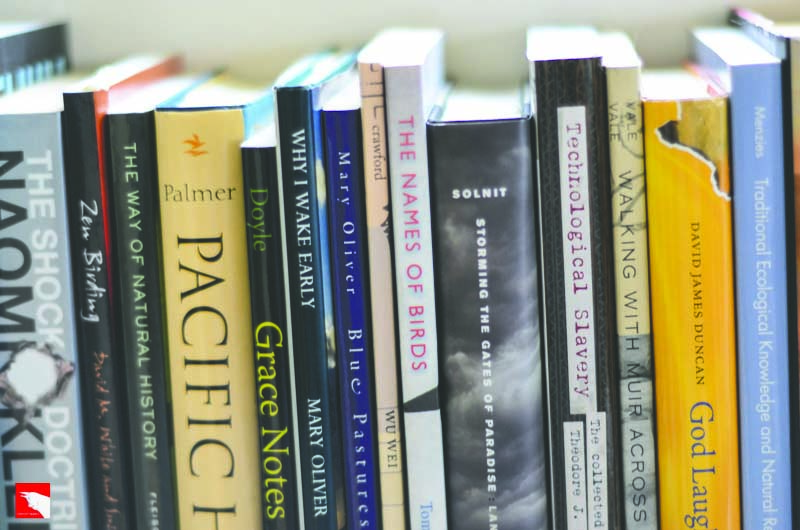When students don’t read, we all suffer
August 31, 2016
With the creation and overuse of countless social media and entertainment platforms, the pastime of reading books has dwindled. Aside from assigned reading—and, let’s face it, a great deal of assigned reading is barely touched—students simply do not read enough!
Now, I’m aware this is a large generalization. As an English major, I know many of my peers read on a regular basis. However, as a college student, I also know of many who have not completed a book in years (including the plethora assigned throughout Conversatio).
The culture of reading must be revitalized. It is time we are reminded of why our childhoods consisted of so many times asking “Mommy, can we read one more?”’ and so many late nights perched underneath our blankets with a flashlight in one hand and a story book in the other.
Firstly, reading reminds us that our lives are not quite as important as we may think. It is the closest thing to time travel we can achieve; through a novel we can travel back to the street performances of Renaissance England, to the trenches of World War I, or even to the passionate rallies of the Black Panthers. For the science fiction lovers, reading can take us to a time in which clones wreak havoc on earth, to human settlement in space, or to the end of the world! Reading can pluck us from our lives and place us in the midst someone else’s, reminding us college students that there is more to life than grades, athletics, and exams.
Secondly, reading helps us define our morals and values. A massive part of college is becoming independent – weaning ourselves off of our parents, finding friends with whom we are alike, and discovering the covert parts of ourselves that generate an identity. We are expected to take stances on religion, politics, war, and determine the morality within each. Whether it’s righteous books such as The Adventures of Huckleberry Finn and Jane Eyre, or simply current events from The Boston Globe, reading enables us to decipher our personal viewpoints. By offering such a wide variety of thoughts, ideas, and opinions, reading is a simple step we can take towards defining ourselves.
Moving forward, reading is a vital stride towards our education. A historic novel about a time period or a famous figure can teach us insurmountable amounts. A book can reach into the darkest shadows of Anne Frank’s attic or the most secretive aspects of King Henry VIII’s life. Simply reading a novel can shed light on an entire era of life that was previously unknown. When we read, we are constantly absorbing new information that will surely come in handy someday.
If none of these reasons speak to you, reading is, at the very least, entertaining.
As children, we are taught that reading and pleasure go hand in hand, however countless book reports, intimidatingly sized novels, and reading comprehension exams diminish that memory. I encourage those of you who have not lately picked up a book to do so. Start with page turners such as The Hunger Games, Gone Girl, or The Maze Runner. Take this simple step to become more educated, open-minded, and self-aware. And for those of you who do read on a regular basis, do not forget the benefits that words yield.
It is understandable that with the creation and overuse of countless social media and entertainment platforms—Instagram, Facebook, video games, and Netflix—reading has diminished in the lives of college students. With these platforms in addition to academics, athletics, extracurriculars, reading for pleasure is bound to slip our minds. Besides, who doesn’t appreciate a little downtime with one hand in the popcorn bowl and the other on the cursor clicking on the next episode of Grey’s Anatomy?
Reading, however, tops my list of favorite past times. I hope I was able to remind you of reading’s pleasures and encourage you to pick up a book, magazine, or newspaper.
As Doctor Seuss says, “The more that you read, the more things you will know. The more that you learn, the more places you’ll go.”



